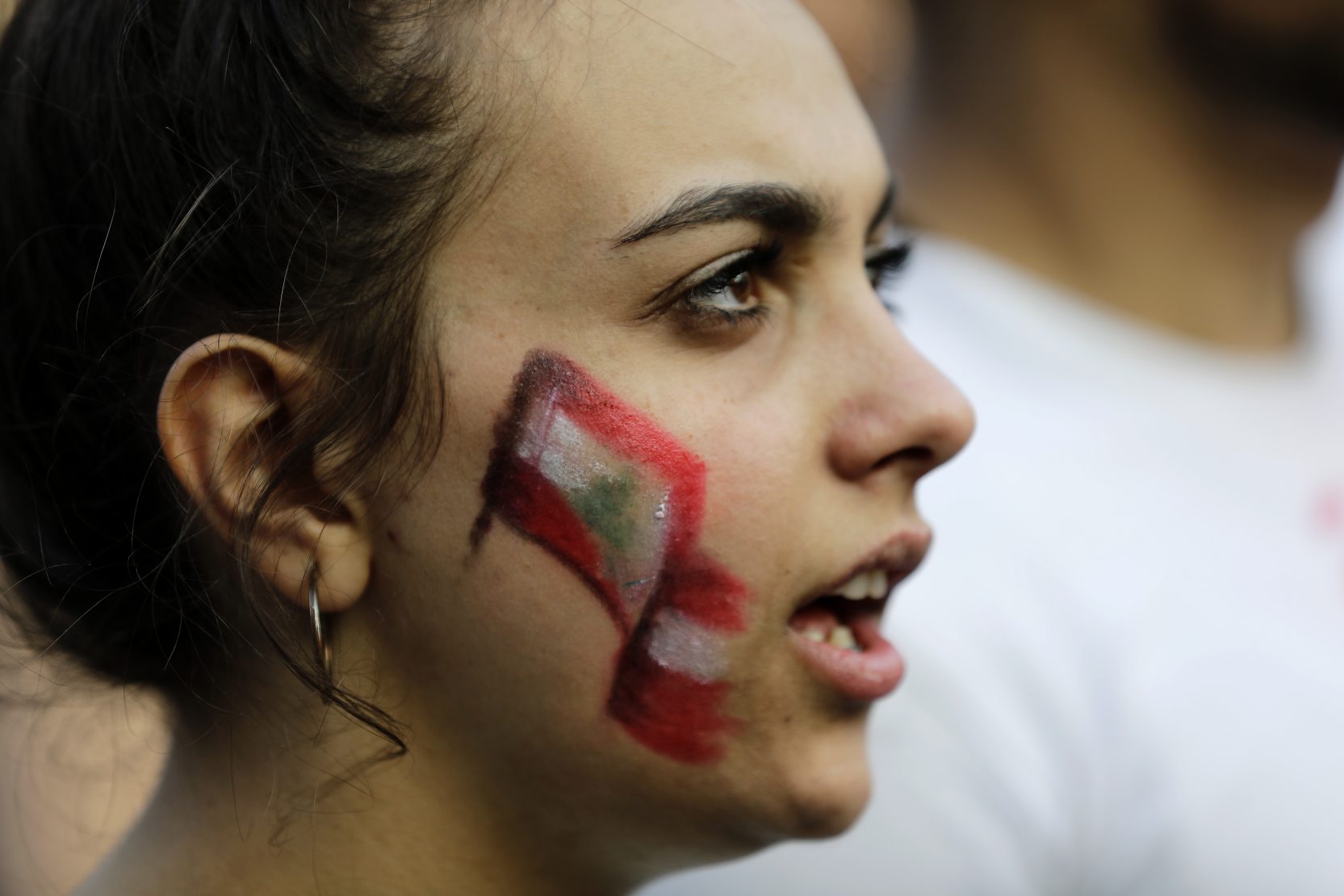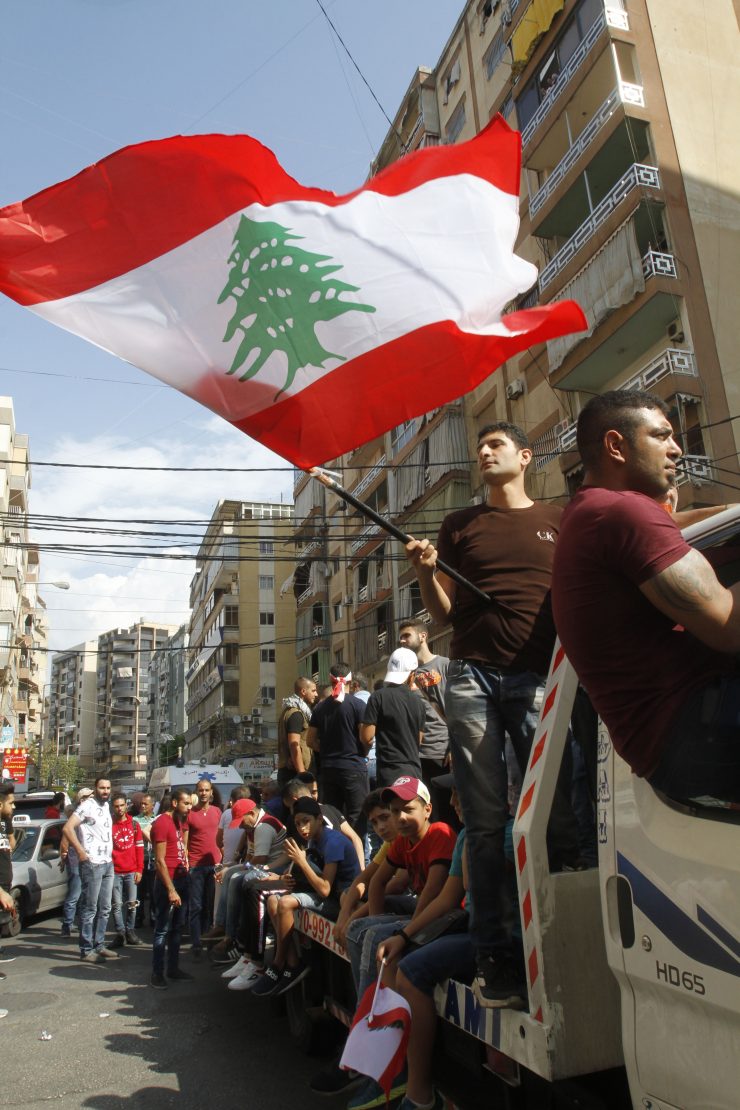The Lebanese uprising requires whoever stands against it to come up with a new method of opposition. Fault lines the authorities have long resorted to have now been completely obliterated. The state’s reaction to the uprising has been risible. “An agent of foreign embassies” is an old accusation they hurled at anyone who took to the streets. They once coined it to describe and scare protesters who now belong to a bygone era. When one new protester heard the expression, it drew an uncomprehending smile on his face. “Which embassy?” the university student wondered, befuddled, “what does that mean? Is this a good or a bad thing?” His indifference towards the accusation has in turn left his accusers confused as to how to confront him. This protester and Hezbollah’s secretary-general, Hassan Nasrallah, and President Michel Aoun do not speak the same language. Even the rest of us who are just riding the waves of the protests feel as though we were marginal visitors to someone else’s revolution.
Perhaps this lack of a suitable language to address the new protesters is the biggest conundrum shaking the state to its very foundations. In this “unrefined” and “impolite” young man, the word “embassy” evokes nothing more than the image of an immigrant visa he was never able to obtain. The Hezbollah leader or OTV channel (a mouthpiece for President Aoun) can go on calling a 19-year old university student a traitor and an embassy agent, but these insinuations will awaken in him or her none of the fear that was instilled in us, “the generation of embassy protesters,” as they branded us. The new protester will also shrug his shoulders should someone call him “impolite,” he to whom it is perfectly normal to wake up every morning to a “f*** you” Whatsapp message from one of his friends.
Scare rhetoric failed to coerce the young protesters to return home. For them, the words “embassy” and “impolite” are just hot air. This language was designed for another generation of demonstrators who, although not less courageous, yet lived under the sway of different fears and apprehensions. Today, there is a tremendous chasm between the new protesters and Nasrallah’s wagging, threatening index finger, and a total alienation between the youths and the president’s aging face.

This sundering generational cleft further revealed itself in the episode of the Mother Superior who, in a Whatsapp voice message she sent to students, threatened to expel whoever dares to join the protests. She inadvertently caused a Pandora’s box to open, spurring an avalanche of Facebook posts, with dozens of personal experiences of being harshly treated by school nuns in the past, when nuns had the upper hand. As for modern-day students, well, it cost them nothing more than pressing the “forward” button until the nun’s message went viral. That was enough for Mother Superior to take back her threat and apologize.
Perhaps, the lack of a suitable language to address the new protesters is the biggest conundrum shaking the authority to its very foundations.
It would be much wiser for those in power to disappear altogether. Their parties are non-existent in the consciousness of this new generation. While they were busy with their own interests and gains, this generation was growing up. It is now difficult for the unprepared state and its parties to confront the new generation with all the knowledge and expertise it came with. Instead, they rushed to interpret the overnight swiftness with which the revolution produced its visual content as preset “conspiracy”: someone must have made all these videos, written those slogans and came up with those curse words before the demonstrations started. Did not the government, its parties, the parents and school teachers know that smartphones can be turned into production tools? Those of them who did were not intelligent enough to realize that the new tools could be used to topple them.
The revolution’s fast pace is the fruit of an advanced technology and culture. In this race, the authorities’ weapons are rusty. Unlike in the past, Hezbollah’s arms have served it nothing in deterring the new protesters. Nasrallah’s consecutive speeches turned into consecutive defeats. And the endeavors of (Michel Aoun’s) Free Patriotic Movement to describe what is happening as being “protests against protests” also failed. The demonstrations blurred every division to the point where it became impossible to return to the pre-uprising era.


The uprising is not an extension of our divisions. Quite the opposite. It has united in its ranks thousands who had thus far belonged to opposing fronts. The authorities do not possess the right language to converse with or confront it. So it was one failed speech following upon another. The president’s face was shaken in his first attempt to address the crowd. Nasrallah changed his look in his second speech, posing in front of the Lebanese flag. These attempts were only successful in exposing the extent to which the authorities are confused. It made them look even more ridiculous.
Maybe the best thing to do for those who refuse to join the uprising is disappear and let it be. What they can also do is reflect, albeit a little too late, on the fact that the uprising has long passed them by and they are no longer fit for a confrontation like this.






